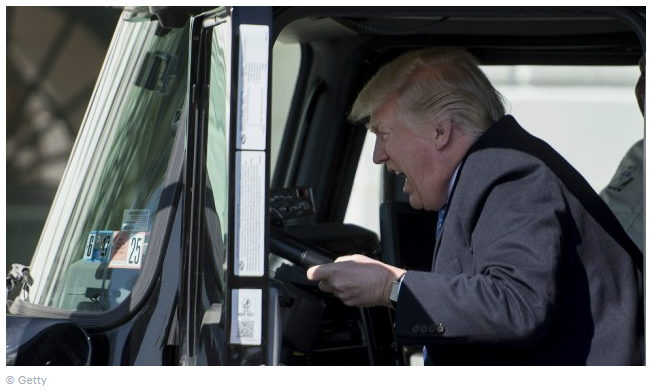Government/Policy

June 15, 2024
Leibowitz: Trump proposal to replace income taxes with tariffs a non-starter
Written by Lewis Leibowitz
Former President Trump’s visit to Capitol Hill last week made a lot of news. One proposal directly involves international trade and tariffs.
While the specifics are hazy, President Trump allegedly talked about replacing the federal income tax on individuals with tariff increases. Let’s check that out.
Federal income taxes on individuals raised about $2.2 trillion in 2023. Customs revenues last year were approximately $80 billion, at least half of which were tariffs on Chinese imports as well as tariffs on steel and aluminum imports.
To generate $2.2 trillion in Customs revenue, tariff collections on US imports would need to increase by more than 25 times.
In 2023, total US imports were $3.8 trillion. Average tariff rates of 57% on all imports would be required to achieve the goal of replacing income taxes with tariff revenue.
But that is not the full story. As tariff rates skyrocketed, imports would inevitably decline. That would reduce tariff revenues. So duty rates would increase, which would further depress imports.
Another concern is that tariffs are among the most regressive of taxes. The poor bear a greater burden as a percentage of their earnings than high-income people. The income tax, by contrast, is progressive. Income taxes rise with incomes, so high earners pay a higher percentage of their incomes than poorer people.
Replacing the income tax with Customs duties would result in more unequal burdens of taxation. Because of the effects of high tariffs on trade values, some have estimated that the tariff rate would need to be more than 100% to raise as much revenue as personal income taxes now do.
Of course, imports are effective competition for domestic goods. They force domestic producers to improve their products, to cut costs, and to increase productivity in manufacturing. A huge tariff increase would eliminate those positive effects of import competition. We have laws to deal with unfair trade practices, such as dumping, subsidies, and forced labor. But tariffs on everything would make life harder and more expensive for millions of Americans.
So, is Trump really serious about this proposal? It is hard to believe that it would actually be put forward as a serious legislative initiative. Perhaps he mentioned it to start people talking about ways that tariffs can be increased to benefit the American economy.
There are obvious problems with our tax policies and the taxes we impose. Perhaps the most important problem is that it does not produce enough revenue to equal the costs of government programs. In fiscal year 2023 (ending September 30, 2023), the federal budget deficit was $1.7 trillion. That’s not much less than personal income taxes collected.
As deficits increase, the amount owed to creditors that lend money to the federal government increases with them. Currently, interest on the national debt is approaching $1 trillion per year. That interest expense has increased dramatically because interest rates have gone up. In many ways, the country is in a spiraling debt crisis. We have not addressed this problem—politics stands in the way.
Thus, it is useful to talk about ways out of our spiraling debt and deficit problems. So far, however, the two parties are as far apart as ever about how to address the deficit.
But replacing income taxes with tariffs? That’s not workable at all.
Editor’s note: This is an opinion column. The views in this article are those of an experienced trade attorney on issues of relevance to the current steel market. They do not necessarily reflect those of SMU. We welcome you to share your thoughts as well at info@steelmarketupdate.com.







